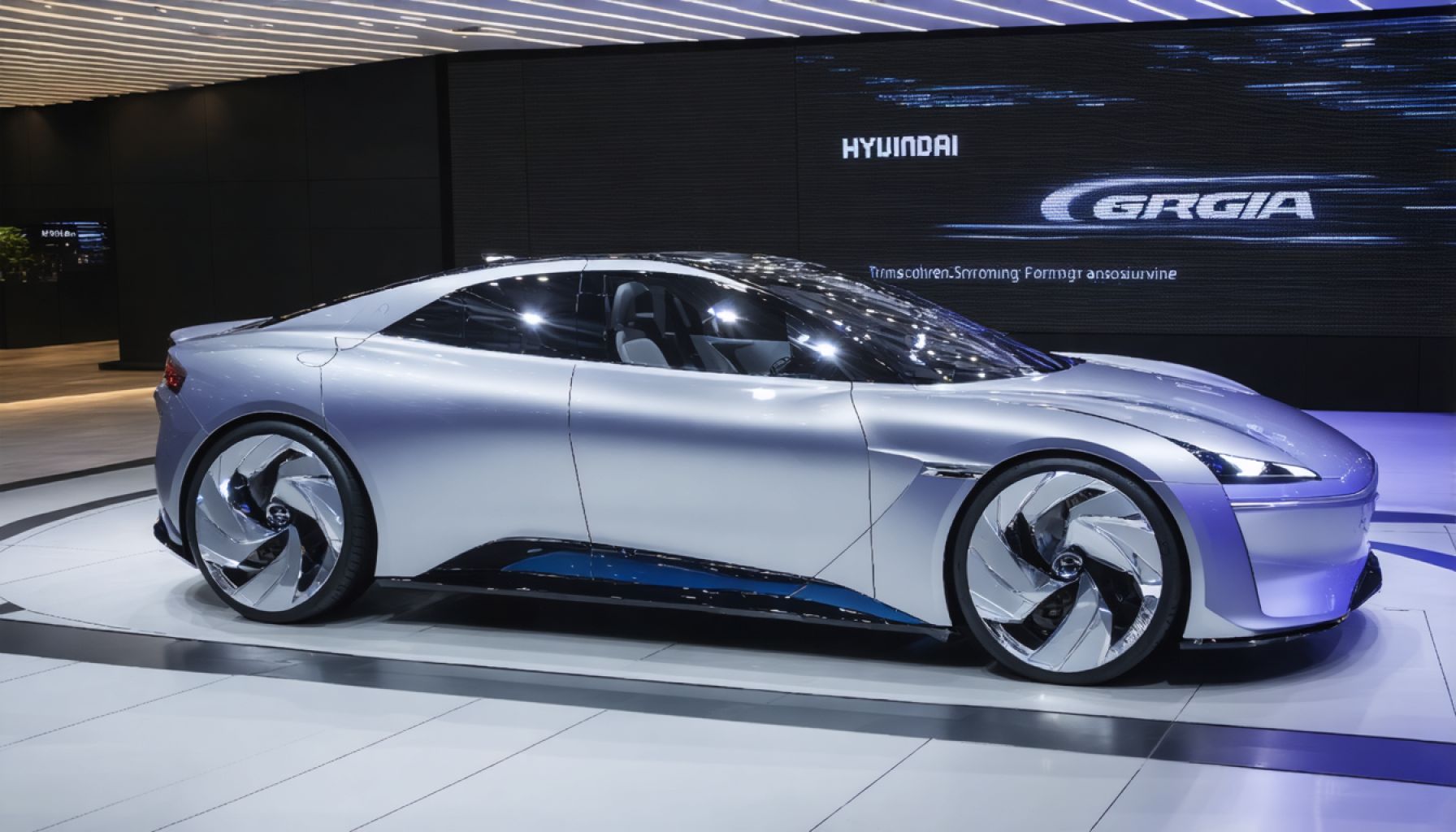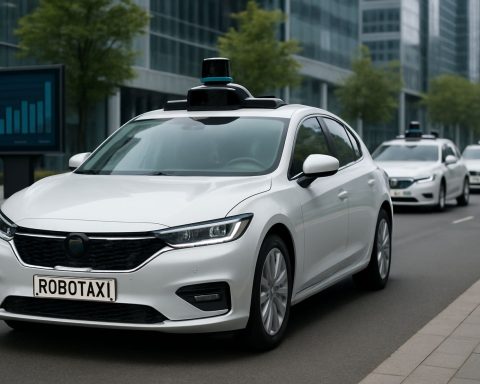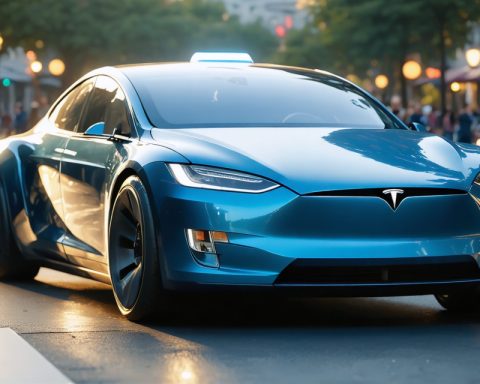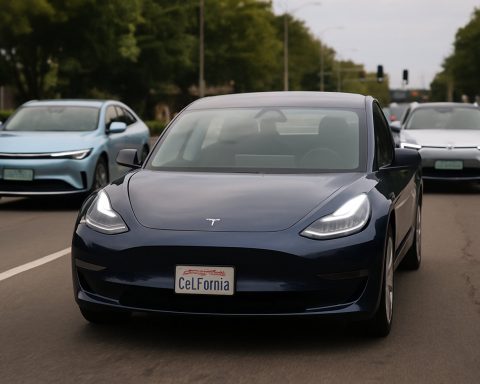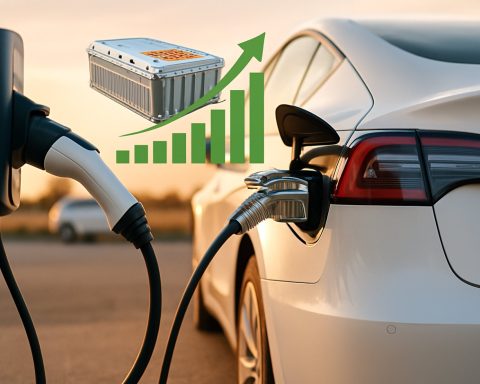- Hyundai’s Metaplant America in Georgia is pivotal for its electric vehicle (EV) manufacturing, targeting an ambitious production goal of 500,000 EVs annually.
- The plant, a $7.6-billion investment, focuses on producing models like the Ioniq 5 and Ioniq 9, reflecting Hyundai’s innovation in sustainable transportation.
- A $2.1 billion incentive package supports the 1,200-employee workforce, highlighting the region’s economic revitalization.
- Hyundai is expanding its footprint with a $5.8-billion steel mill in Louisiana, fortifying its supply chain to bolster operations across America.
- Leadership by Euisun Chung and Jose Munoz emphasizes Hyundai’s commitment to investing in and redefining the U.S. auto industry, overcoming tariff challenges.
- The initiative underscores the potential of international collaboration in driving the future of sustainable mobility.
Amid the rolling hills of Bryan County, Georgia, Hyundai’s colossal assembly plant roars to life, propelling an ambitious vision into the fast lane of electric vehicle manufacturing. The South Korean automaker has taken a bold step to dramatically scale production at its state-of-the-art Metaplant America facility. Set against a backdrop of sweeping legacies in combustion engines, this plant represents a pivotal shift towards the electric horizon, with plans to rev up production to a staggering 500,000 vehicles annually.
The soil for the $7.6-billion titan was first broken in the fall of 2022. Now, less than two years later, the factory hums with an industrial orchestra, orchestrating the creation of the sleek Ioniq 5 and the highly anticipated Ioniq 9. These technological marvels are not just cars; they are Hyundai’s declaration of optimism and innovation in the realm of sustainable transportation. Rewarded with $2.1 billion in incentives from local and state authorities, Hyundai has invigorated the Georgian landscape, currently employing around 1,200 personnel, each crafting pieces of the future.
But Hyundai’s vision doesn’t stop at the Georgia state line. Down south in Louisiana, ground will soon be broken for a mega $5.8-billion steel mill, a behemoth that will churn out essential auto parts for plants from Georgia to Alabama. This strategic move ensures a sturdy backbone for Hyundai’s American operations and secures a supply chain resilient enough to withstand global uncertainties.
Euisun Chung, Hyundai Motor Group’s Executive Chairman, stands resolute in his commitment to America. His confident stride embodies the promise that Hyundai isn’t just visiting; it’s here to invest, evolve, and redefine the mechanics of mobility. Meanwhile, company CEO Jose Munoz underscores the strategic brilliance: a plant full of vehicles destined to glide past tariff barriers unhindered.
Hyundai’s saga in Georgia is more than an industrial boon; it is a testament to the transformative power of international partnership and innovation. As the electric buzz grows louder, the message is clear: Hyundai is accelerating towards a sustainable future, inviting everyone to join the journey into uncharted territories of technology and hope.
Inside Hyundai’s Metaplant: A New Era for Electric Vehicles
The Hyundai Metaplant America in Bryan County, Georgia, is not just a manufacturing hub—it’s a symbol of the broader revolution in electric vehicle (EV) adoption and production. With its significant investment and strategic geographic positioning, Hyundai aims to become a key player in the North American EV market.
Features and Innovations at Hyundai’s Metaplant
1. Scale and Efficiency: The Hyundai Metaplant is designed to produce up to 500,000 vehicles annually, leveraging state-of-the-art automation and production techniques. This scale positions Hyundai competitively in the U.S. EV market against established giants like Tesla and emerging players such as Rivian and Lucid Motors.
2. Ioniq Models: At the heart of this plant’s operations are the Ioniq 5 and the upcoming Ioniq 9. These models are crucial to Hyundai’s strategy, featuring cutting-edge battery technology, impressive driving ranges, and advanced autonomous driving capabilities.
3. Job Creation and Economic Impact: With approximately 1,200 jobs created, the plant significantly boosts local employment and economic growth. It also fosters skill development and attracts further investments into the region.
How Hyundai’s Metaplant Could Revolutionize the EV Market
Real-World Use Cases
– Sustainability Initiatives: Hyundai’s operations are aligned with global sustainability goals. The company plans to reduce its carbon footprint by incorporating renewable energy sources in its production processes. This approach not only enhances eco-efficiency but also positions Hyundai as a leader in sustainable manufacturing.
– Supply Chain Resilience: The new steel mill in Louisiana is part of Hyundai’s strategy to localize supplies, reducing dependency on international imports and enhancing responsiveness to market fluctuations.
Industry Trends and Market Forecast
– Rising Demand for EVs: According to a report by Deloitte, global EV sales are expected to reach 31.1 million units annually by 2030. Hyundai’s investment reflects this trend, particularly in the U.S. where EV adoption is accelerating due to favorable policies and increasing consumer interest.
– Competitive Edge: The avoidance of tariff barriers by producing locally is a strategic advantage, allowing Hyundai to offer competitive pricing, potentially increasing their market share in North America.
Pressing Questions Answered
How does Hyundai plan to ensure the quality and sustainability of its EVs?
Hyundai employs rigorous quality control measures and strives for sustainability through efficient energy use and waste management systems at the Metaplant. The focus on in-house production of crucial components like batteries also enhances quality assurance.
What challenges might Hyundai face in expanding its EV operations in the U.S.?
Challenges include potential supply chain disruptions, evolving regulatory requirements, and competitive technological advancements. However, Hyundai is proactively addressing these through strategic partnerships and investments in R&D.
Actionable Recommendations
– For Prospective EV Buyers: Consider Hyundai’s Ioniq models as they combine advanced technology with sustainable practices, making them a worthwhile investment for eco-conscious consumers.
– For Stakeholders: Engage with Hyundai to explore partnership opportunities, particularly in sustainability initiatives and technological innovations.
Quick Tips
– Keeping Up with EV Trends: Follow industry reports and Hyundai’s press releases to stay updated on the latest developments in EV technology and market dynamics.
– Exploring Job Opportunities: For careers in sustainable manufacturing and automotive technology, consider roles at Hyundai’s Metaplant and associated facilities.
For more information on Hyundai’s vision and operations, you can visit their official website: Hyundai.
